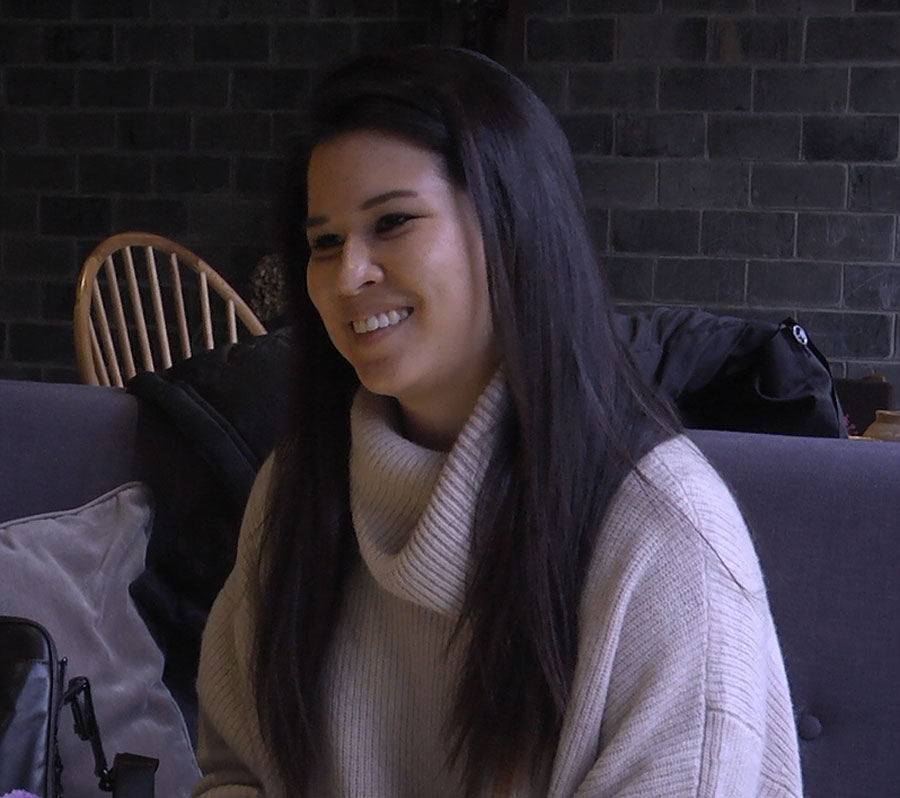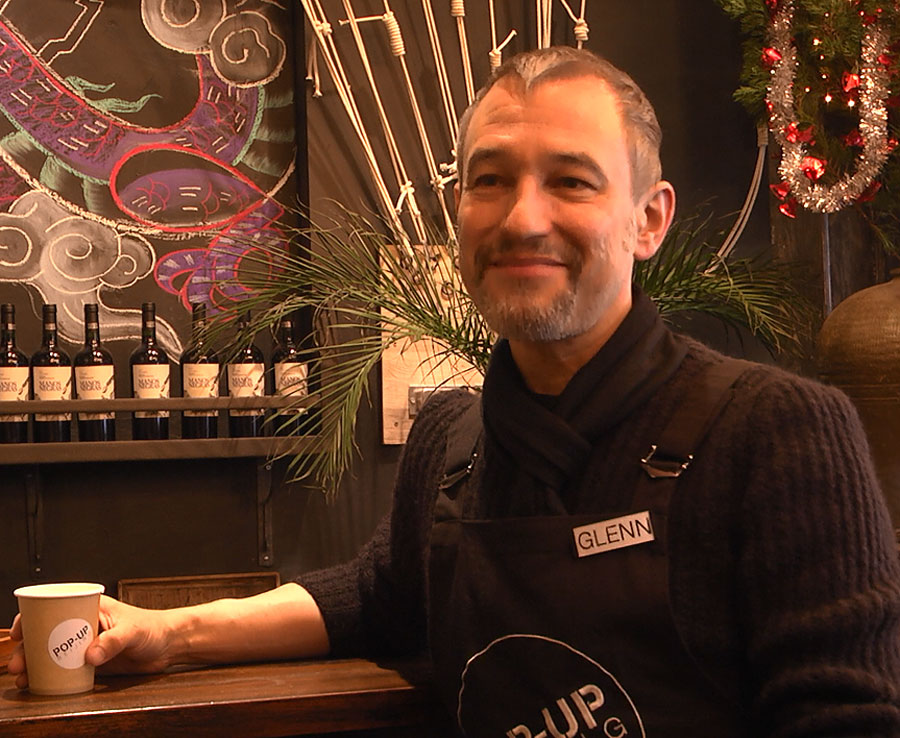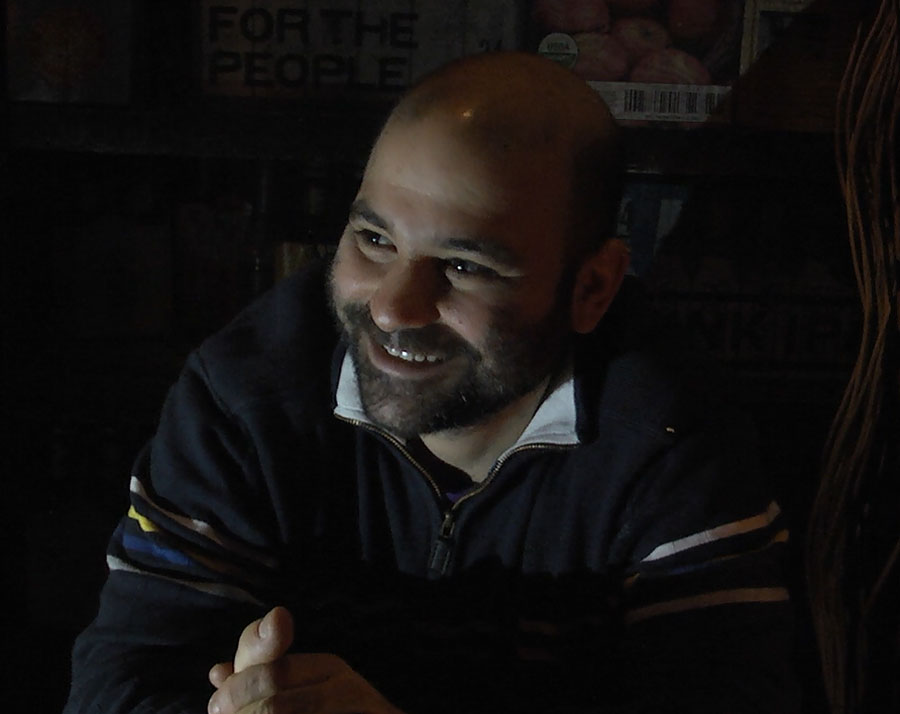

Laowai in Beijing by Ge Mengchao, Viktoria Fricova and Wang Peinan.
Han Bo also contributed to this story.
*Laowai is an informal term for a foreigner in Chinese. Derived from lao (old, respectful way of addressing people) and wai (foreign, outside),it is widely used to refer to "Westerners" in China.
China ranked third best destination for expats in the latest study by HSBC Group in October 2014. The number of foreigners who choose to experience life in China has been increasing steadily for the last 16 years.
Foreign people are attracted by various opportunities the world's second biggest economy offers. Overseas students and foreigners with a vision of absolutely new adventures come here to learn the language, discover the culture and observe business insides. No wonder many choose to extend their stay.
Rather than searching for a regular job, more and more laowai decide to go after their dreams and start their own businesses. Last month, a new government policy implemented in Beijing echoed their dire needs.
This policy, issued by Ministry of Public Security, aims to attract more foreign talented personnel to work in Beijing, including 20 articles concerning to reform of visa, exit-entry policy and temporary and permanent permit.
China’s central government now is eager to broaden policy, to streamline administration and to improve service as well, which demonstrate its warm welcome to foreign start-upers. In recent days, we interviewed three foreign start-upers and present their entrepreneurial stories for you to have a look at their joys and sorrows in China. What difficulties start-upers face in China? Is Chinese language a necessity? What does one gain from running a business in a Chinese market?

Smantha Kwok, Australian Chinese, is the CEO and founder of Jingjobs.
Samantha Kwok: I have nothing to lose
Ambitious, confident and passionate.
After only few minutes' talk with CEO and founder of Jingjobs, it is clear that this young lady knows exactly what she wants to achieve.
Chinese born Australian, Samantha Kwok, started her business in 2012.
Website that 'offers tailor-made HR solutions' has now received more than 20,000 hits a month. It is a platform where start-ups and talented job seekers can match their needs.
Before starting a business, Samantha once worked at Morgen-Stanley as an intern. Having the same daily routine of preparing reports or attending endless meetings didn't seem to be her cup of tea. She could not see any relation between 'what you have done and actual results'.
With the willingness to learn Mandarin, the young graduate came to Beijing and did four months language course. Samantha felt that this city may have some more adventures prepared for her so decided to get a job. This was when she found herself lost in the sea of opportunities.
"It is hard to find what you actually want." Samantha said, "I have always wanted to be an entrepreneur and work with people who are building something from ground up."
Her initial position of a "job-seeker" has been replaced by a "start-up seeker". Visiting tech events and job fairs has become a necessity to get to know small businesses that desperately need young talents.
So she made up her mind to create a website which connects talented bilingual people and medium-to-small start-ups. "My core vision is to create a community where people can get free resources and be able to help each other." Samantha said.
But that means Jingjobs.com doesn't have a revenue stream, and Kwok is not taking a salary from it.
"Ultimately in the long run, I would aim to be profitable otherwise it will not be sustainable," she said.
So one year ago, she created Hrbutler.com, a human resources consulting business for start ups and small-to-medium enterprises that need recruiting workers. It is just different branch of Jingjobs.com but became profitable within four months.
This time, Kwok targeted at the tedious registered procedures and potential difficulties a small business may face at the very beginning.
Last year in November, a special service center has been launched at Zhongguancun high-tech hub in Beijing as China’s government pledges to attract more overseas talents like Kwok.
The center will offer visa, residential permit and permanent residence services to foreigners who start businesses or are employed in the Zhongguancun National Demonstration Zone.
Wang Xi, deputy head of Beijing Public Security Bureau's Exit-Entry Department, said to China Daily that the center would serve as a pilot program. Experience gained from the program would help to promote similar services throughout the city, or even nationwide.
"Restrictions have been relaxed to enable more foreign talent to come here to start new businesses," he said.
So did Kwok strive for this. By helping new start-up owners to set up their businesses through Hrbutler.com and then posting their needs for new talents on Jingjobs.com, Kwok has built complete platforms both for employers and job seekers. Most of the revenues and talents' needs constantly come from Hrbutler.com; thus, Jingjobs.com is not only fully funded but can get abundant information and attention.
"Not only did they deliver above our expectations but it was a real pleasure to deal with Jingjobs as they quickly understood our needs," said Jerome Scola, Co-founder of DayDayUp Co-working Space.
Moreover, eight months ago, Kwok received a RMB 100,000(US$15,400) grant from the Chaoyang District government in Beijing. She said she will use all the money to improve the platforms she has built, for example, to make them multi-language and more efficient.
"The grant is great because it is provided by Chinese government and specifically for foreign entrepreneurs or graduates who studied overseas. It is really helpful," Kwok said.
What she received is called phoenix grant. It aims to promote foreigners and Chinese graduates who pursued their study abroad to set up their own business at Chaoyang District with numerous incentives and subsidies.
Start-up is a hot topic in China and there are many other options Samantha keeps in mind for the future. Alibaba supports young entrepreneurs with its fund, and there are also accelerators' programs investing in promising ideas such as f6s.com, chinaccelerator, 36kr.com,etc.
"I try to get people take me seriously at the age of 21. It is quite hard," Kwok said, "But starting up a company definitely is a process that I learn quite quickly like how to convince people to take me seriously and to not let my age, gender and nationality be a restriction."
Starting business in China definitely is an unforgettable experience for Kwok. "In these two years, I have been learning so much," she said, "I didn't just do marketing, tech, development. Everything you can think of, I have to try and do it even if I don't know how to do it."
She is also happy that she didn't stay at Morgan Stanley for three more months to get a job offer. "That (entrepreneurship in China) taught me so much more than if I just choose an entry level job somewhere about something I am not really passionate about," she said.
Kwok encourages young people to make bold trials at this age. "I think for young entrepreneurs it is easier to take risks right now when you don't have a family, a husband or a child,” Kwok said, “I have nothing to lose. It is not ok to just have a good salary anymore."

Glenn Schuitman, from New Zealand, is the owner of Pop up Beijing.
New Zealander pops up in Beijing
Surrounded by bottles of wine and whisky on the shelves, delicate traditional Chinese ceramics, exquisite furniture imported from Antwerp, Belgium, and gilded luxurious ceiling lamps overhead, Glenn Schuitman accepted our interview at Pop up Beijing, his home store in Sanlitun, an area of the Chaoyang District, Beijing containing many popular bar streets and international stores.
Glenn comes from New Zealand. He is half Dutch, sort of mixed New Zealander. When moving to China, he worked in management consulting as an international business strategist. Yet he never really abandoned his passion for design. Coming to Beijing gave him an incentive to change the course of his life.
"I was somehow touched by Beijing as city. I enjoyed the energy here." Glenn said to us.
As first, Glenn came to China simply to explore the country as a tourist. But it only took him five months to determine to stay. He extended a visa and was offered a contract. The idea of creating a life in China started rising.
"Time flew very quickly and here I am today." he said.
Glenn found a way to get back to interior design, his life-long passion. He quickly understood that China gives you chances to explore new careers, to start new paths of life, which do not exist in every other country. What you should do is to target, to strategize and to grab the opportunity.
The store Glenn welcomed us warmly is an extension of his interior architecture studio run together with his Chinese partner Vito Zhang, architect and structure engineer. They have been running the business for 4 years now.
The cooperation and friendship started just next door in the same building when Glenn was invited to help with a project. He personally contacted Vito when he heard about his newly opened studio.
"The moment I met him, there was some energy between us." Glenn said.
Having a local partner who is your great friend you can rely on is an amazing advantage to have. Finding Vito was the "greatest luck" for Glenn.
As Glenn jokes that store is a 'hungry animal, taking lots of energy and commitment', he admits that he tries to strike balance between the store and design. They expect to re-focus back to design in two years.
Starting a business comes with difficulties no matter where you are. Glenn sees his very basic 'taxi Chinese' as the biggest difficulty and a personal failing. He sets up a must-goal for the future to learn Mandarin.
"It is possible to do business in this country without speaking Chinese. But it is not ideal." Glenn laughed.
Being able to speak the language is not only crucial for communication with customers, but for creating friendships.
'Diverse population' is what Glenn sees a specific feature of a Chinese market. Many businesses do the same mistake, they try to have a broad focus, to bring a solution to everything.
Glenn advices to target on what you are best at. China’s market is full of opportunities. Your task is to find what is missing and match the gap with your skills and abilities.
As a small business, Pop up Beijing cannot rely on big marketing campaigns. Most of the communication is done through various events organized in the space of the store; wine tasting, origami, private parties, etc. It brings customers in so they can see what is behind the huge store windows. Brand awareness is driven by a positive image spread by those who come and like it.
"Naturally, because we are in China, we will always push for Chinese consumers." Glenn said.
Yet the location in Sanlitun, 'ghetto for expats' as Glenn calls it, and rather western-oriented style of their products determine attention from foreigners.
Since the shop is still a baby, open not for more than a year and half, the future plan is to consolidate what they have achieved now.
"One of the greatest challenges is to know when to say no." Glenn said at last.

Moxi, from Isarael, runs a restaurant in Beijing called MoxiMoxi.
Israeli cuisine made with die-heart love of Beijing hutong
*Hutongs are a type of narrow streets or alleys, commonly associated with northern Chinese cities, especially in Beijing.
"Our story, of me and my partner, began three years ago. We arrived to China knowing not even one word in Chinese." said Moxi.
Israel has a mandatory military service for both males and females over the age of 18. Moxi and Igal finished the conscription at the age of 21. Seven years later, as Israeli airline company's staffs, they crossed the Chinese borders and started working as security employees.
They lived together for one year but as Igal says 'partnership can be in different ways, but living should be separate'. Now they are best friends, partners at work but with separate apartments.
Day of a security worker is boring and gives you lots of spare time. Moxi and Igal during free hours focused on broadening their knowledge. They studied Chinese language, culture and manners.
"The first time I arrived to Beijing, I was totally shocked." Actually, Moxi was shocked by the huge amount of people. People who do not understand you and you barely understand them. The adaptation to different culture took him quite a while.
The idea of creating Moximoxi was born in the very same hutong where the restaurant is located now.
In summer 2014, day like any other, the Israelis were sitting in Fangjia hutong at Was Park, their favorite place selling burgers. While they were chatting and enjoying the evening, one of their friends suggested 'why won't you open a restaurant with Israeli food, here in hutongs'.
Then a four-week round of trying and testing started. The aim was clear: to see how Beijing locals react to their food. There was one dish on the menu, pita bread called sabich (consisting of pretty simple ingredients: fried eggplant, boiled eggs, salad, tahini sauce and fried cauliflower). It holds a place on their menu till nowadays.
Tahini is a paste made from sesame seeds. Moximoxi imports it directly from Israel to maintain the most authentic taste.
They could sell around 100 pitas a day. The positive respond from locals encouraged them to think it over and finally opened their own restaurant.
The day we met Moxi for an interview, he was hosting a networking event in the bar next door called Cellar Door. Two places share the wall with a small window, through which Israeli dishes are being served to the neighboring bar's customers.
Food bar itself is in a very tiny room, small kitchen with two workers can fit in. In a summer though, the true atmosphere of Moximoxi comes to live and customers sitting outside at the terrace can enjoy snacks from both bars.
However, starting a business has two sides of a coin.
The only experience with a food industry Moxi had, was when at the age of 16 he used to prepare pitas back in Israel. Igal contributed with an education in business. Otherwise the guys started from a 'blank space'.
"To open a restaurant in China is extremely hard. All the certificates, licenses, things you have to handle. On the other hand, it is so easy. You have so many people to help you within the second in any moment."
In China, you can find anything you want. Anything can be ordered online, reached at a local market or bough in a warehouse with equipment 'that you can build hotel out of it', he said.
Moxi visited several Israeli restaurants in Nepal, India, Thailand. All the places would have long menus with dozens of dishes. But he did not intend to imitate them. Moximoxi currently offers four types of pita bread. There is no rush to add more. When the restaurant has time to develop the menu, new offers will be added.
Most of the plates are vegetarian, meat lovers can order one chicken dish.
The main idea behind the kitchen is to keep food as authentic as possible. "The falafel pita you would get here is the falafel pita you would get in Israel, Tel Aviv, Jerusalem."
Tahini, mango sauce, coffee, all these are imported from Israel and plates are prepared, according to Moxi grandma's recipe.
The business has been running for nearly a year. Moxi and Igal are still in a process of learning. They want to talk to customers, to establish relations. They go to the food markets, attend events, provide catering where the authentic taste of Israel can be spread outside their small food bar.
Moxi has learnt two lessons during the last half a year. Having a business requires a lot of work and devotion. Having an initial idea, location and budget is a necessity, and only after you have to combine it.
"Believe all the clichés you have heard. Believe in what you are doing. Believe in yourself. And just continue working." he told us, the second important thing is that 'you can't convince Chinese people to love your food.' Chinese tastes are strong and it takes time to "teach" them to experiment with the new ones.
(Ge Mengchao, Viktoria Fricova and Wang Peinan are graduate students from Tsinghua School of Journalism and Communication in Beijing.)
Day|Week

 Female official wearing traditional Han costume to promote local tourism
Female official wearing traditional Han costume to promote local tourism Over 12,000 Runners Seek Medical Care in S China’s Marathon
Over 12,000 Runners Seek Medical Care in S China’s Marathon Six Luxury Sports Cars Totaled after Fail Attempts to Cross China’s Most Perilous Highway Linking SW China’s Sichuan and Tibet
Six Luxury Sports Cars Totaled after Fail Attempts to Cross China’s Most Perilous Highway Linking SW China’s Sichuan and Tibet Incredible Transformation: “Witch Child”Whose Parents Left Him for Dead in Nigerian Makes Speedy Recovery
Incredible Transformation: “Witch Child”Whose Parents Left Him for Dead in Nigerian Makes Speedy Recovery Kenyan woman's crappy photoshopped pictures make her a web celebrity
Kenyan woman's crappy photoshopped pictures make her a web celebrity Magnificent view of E. China's Anhui province
Magnificent view of E. China's Anhui province Global landmarks captured in striking shots
Global landmarks captured in striking shots Thailand Elephants Disguised as Pandas Sparks Debates
Thailand Elephants Disguised as Pandas Sparks Debates College girl dresses as mermaid to mark World Water Day
College girl dresses as mermaid to mark World Water Day J-15 fighters in drill on Chinese aircraft carrier
J-15 fighters in drill on Chinese aircraft carrier